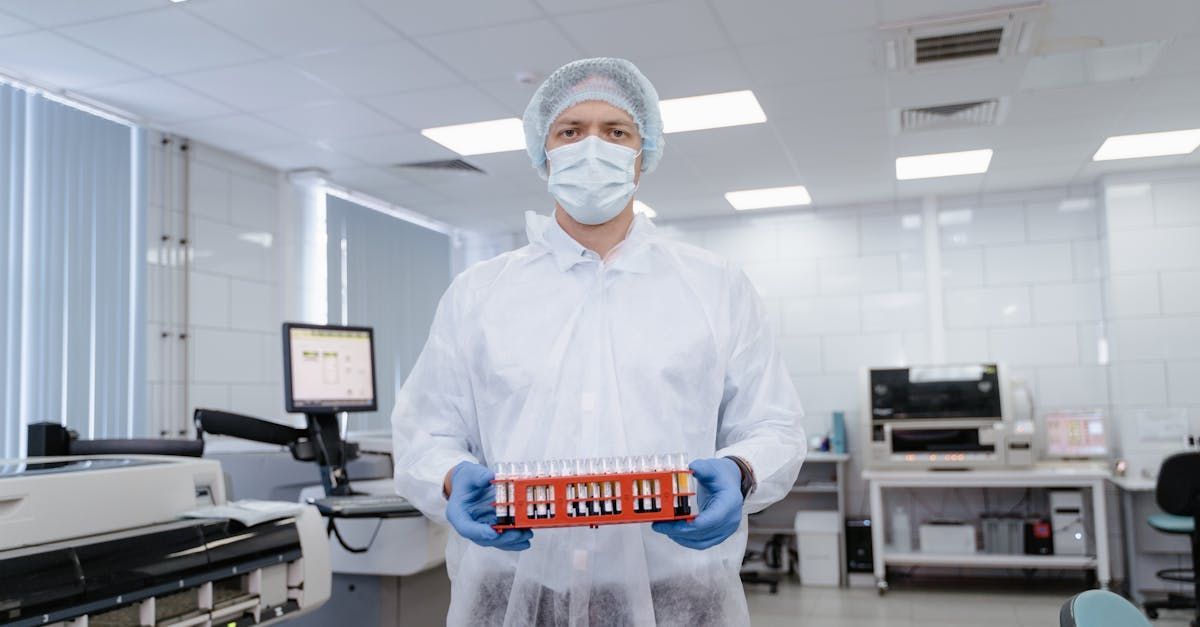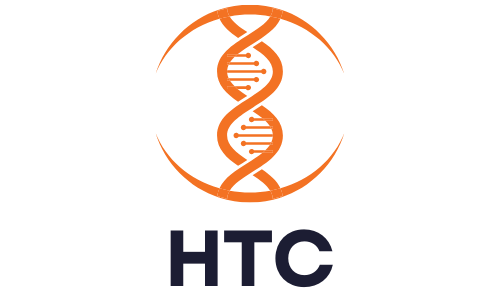The Impact of HealthTech on Global Health Initiatives
The global healthcare landscape is undergoing a transformative evolution driven by rapid advancements in health technology (HealthTech). Innovations such as telemedicine, wearable devices, artificial intelligence (AI), and blockchain are revolutionizing how healthcare is delivered and managed, particularly in low- and middle-income countries (LMICs). These technologies are crucial for global health initiatives that aim to improve health outcomes and increase access to care worldwide. This blog explores the impact of HealthTech on global health initiatives and the investment opportunities they present.
Understanding HealthTech
HealthTech encompasses a broad array of technologies designed to enhance healthcare delivery and outcomes. Key components include:
Telemedicine: Telemedicine utilizes telecommunications technology to provide healthcare services remotely. It helps overcome geographical barriers and improves access to care, especially in remote and underserved areas. By enabling virtual consultations, telemedicine reduces the need for physical visits to healthcare facilities.
Wearable Devices: Wearable devices, such as fitness trackers and medical-grade sensors, monitor various health metrics in real-time. These devices collect data on heart rate, physical activity, sleep patterns, and more, providing valuable insights into an individual’s health and enabling proactive management of health conditions.
Artificial Intelligence and Machine Learning: AI and machine learning algorithms analyze vast amounts of healthcare data to support clinical decision-making, enhance diagnostics, and personalize treatment plans. These technologies can predict patient outcomes, identify disease patterns, and recommend appropriate interventions.
Big Data Analytics: Big data analytics involves processing and analyzing large datasets to uncover hidden patterns and insights. In healthcare, it can track disease outbreaks, monitor public health trends, and optimize resource allocation, thereby improving healthcare delivery and outcomes.
Blockchain: Blockchain technology ensures the secure and transparent sharing of health data. It enhances data privacy, streamlines administrative processes, and improves the traceability of medical supplies, reducing the risk of counterfeit drugs entering the supply chain.
Digital Health Platforms: Digital health platforms offer a range of services, including telemedicine, remote monitoring, mental health support, and personalized health interventions. These platforms provide convenient and accessible healthcare solutions to patients worldwide.
The Role of HealthTech in Global Health Initiatives
Global health initiatives focus on improving health outcomes, particularly in LMICs where healthcare challenges are most acute. HealthTech plays a crucial role in addressing key issues such as access to care, disease prevention and management, healthcare infrastructure, and health education.
Improving Access to Care
HealthTech significantly improves access to care by overcoming geographical barriers and addressing shortages of healthcare professionals. Telemedicine platforms enable remote consultations, diagnostics, and treatments, making healthcare accessible in underserved areas. For instance, platforms like Babylon Health and Ada Health provide AI-powered remote consultations and personalized health advice, extending healthcare services to remote populations.
Enhancing Disease Prevention and Management
Wearable devices and remote monitoring technologies enable continuous tracking of health metrics, allowing for early detection of health issues and timely interventions. This is particularly crucial for managing chronic diseases such as diabetes, hypertension, and cardiovascular diseases, which require ongoing monitoring and management.
AI and big data analytics play a vital role in tracking and predicting disease outbreaks. For instance, BlueDot, a Canadian health monitoring platform, uses AI to analyze vast amounts of data from various sources, including news reports, airline data, and public health databases, to predict and track the spread of infectious diseases. BlueDot successfully identified the COVID-19 outbreak days before it was officially recognized by health authorities.
Strengthening Healthcare Infrastructure
Building robust healthcare infrastructure is essential for improving health outcomes in LMICs. HealthTech can support this goal by streamlining administrative processes, enhancing supply chain management, and ensuring data integrity. Blockchain technology, for example, provides a secure and transparent way to manage health records, track medical supplies, and prevent counterfeit medications.
One notable example is the MediLedger Project, which uses blockchain to create an immutable ledger for tracking pharmaceuticals. This technology ensures the authenticity and traceability of medications, reducing the risk of counterfeit drugs entering the supply chain. Such innovations are critical for maintaining the integrity of healthcare systems and ensuring that patients receive safe and effective treatments.
Promoting Health Education and Awareness
Health education and awareness are fundamental components of global health initiatives. Digital health platforms and mobile apps provide accessible and engaging ways to educate individuals and communities about health and wellness. These platforms offer a range of resources, including educational videos, interactive quizzes, and personalized health tips, to empower individuals to take charge of their health.
For instance, the Safe Delivery App, developed by the Maternity Foundation, provides healthcare professionals with easy-to-access, evidence-based information on maternal and newborn health. The app includes instructional videos, checklists, and practical guidelines to support safe deliveries and improve maternal and neonatal outcomes. By enhancing the knowledge and skills of healthcare providers, such platforms contribute to better health outcomes for mothers and babies.
Case Studies of HealthTech Impact
To better understand the transformative potential of HealthTech in global health, it's helpful to examine specific case studies where these technologies have made a significant impact.
Case Study 1: Telemedicine in India
In India, telemedicine platforms have been pivotal in extending healthcare services to remote and rural areas. The eSanjeevani platform, developed by the Ministry of Health and Family Welfare, provides teleconsultation services to patients across the country. During the COVID-19 pandemic, eSanjeevani played a critical role in ensuring continued access to healthcare while minimizing the risk of virus transmission. The platform facilitated over one million teleconsultations, demonstrating the effectiveness of telemedicine in bridging the healthcare access gap.
Case Study 2: Wearable Devices in Chronic Disease Management
Wearable devices have revolutionized chronic disease management by enabling continuous monitoring and early detection of health issues. For example, Fitbit and Apple Watch have been widely used to track physical activity, heart rate, and sleep patterns. In clinical settings, wearable devices like the FreeStyle Libre, a continuous glucose monitor, have transformed diabetes management by providing real-time glucose readings and reducing the need for frequent finger-prick tests. These devices empower patients to take control of their health and facilitate timely interventions by healthcare providers.
Case Study 3: AI in Disease Prediction and Management
AI has been instrumental in predicting and managing disease outbreaks. During the Ebola outbreak in West Africa, AI-driven platforms like HealthMap and Metabiota analyzed data from various sources, including social media and news reports, to track the spread of the virus and predict future outbreaks. These platforms provided valuable insights that helped public health authorities implement targeted interventions and allocate resources effectively. The success of these AI-driven platforms highlights the potential of AI in enhancing disease surveillance and management.
Case Study 4: Blockchain in Supply Chain Management
Blockchain technology has been used to enhance the transparency and security of pharmaceutical supply chains. The MediLedger Project, for instance, leverages blockchain to track the movement of drugs from manufacturers to pharmacies. This technology ensures the authenticity of medications and prevents the distribution of counterfeit drugs. In addition to improving supply chain security, blockchain technology can streamline administrative processes and reduce costs by automating transactions and eliminating intermediaries.
The Impact of HealthTech on Global Health Initiatives
HealthTech innovations are fundamentally transforming global health initiatives, offering solutions to some of the most pressing healthcare challenges, particularly in low- and middle-income countries (LMICs). By leveraging advancements in telemedicine, wearable devices, artificial intelligence (AI), and blockchain, HealthTech enhances access to care, improves disease prevention and management, strengthens healthcare infrastructure, and promotes health education. These technologies not only bridge gaps in healthcare access and delivery but also empower individuals and communities to take control of their health.
The rapid growth of HealthTech presents numerous investment opportunities. Investors can capitalize on the increasing demand for digital health solutions and the expanding market for healthcare innovations. Key areas for investment include:
Telemedicine: The telemedicine market has experienced significant growth, driven by the need for remote healthcare services, especially during the COVID-19 pandemic. Investing in telemedicine platforms offers substantial growth potential as healthcare systems continue to integrate remote care.
Wearable Devices: The market for wearable devices is expanding rapidly, with increasing consumer interest in health and fitness tracking. These devices offer valuable applications in clinical settings for remote monitoring and chronic disease management. Investing in companies that develop innovative wearable technologies can yield significant returns.
AI and Machine Learning: AI and machine learning are transforming healthcare by enabling more accurate diagnostics, personalized treatments, and efficient resource management. Startups and established companies focusing on AI-driven healthcare solutions present attractive investment opportunities. Investors should look for companies with strong technical expertise, robust data management practices, and a clear path to regulatory compliance.
Digital Health Platforms: Digital health platforms that offer comprehensive health services, including telemedicine, mental health support, and remote monitoring, are gaining traction. These platforms provide scalable and cost-effective solutions to meet the growing demand for healthcare services. Investing in digital health platforms with a proven track record and a strong user base can provide stable returns and growth potential.
Blockchain Technology: Blockchain technology offers unique solutions to enhance data security, supply chain management, and administrative efficiency in healthcare. Companies that leverage blockchain for health data management, pharmaceutical tracking, and secure transactions present promising investment opportunities. Investors should focus on companies with innovative blockchain applications and strategic partnerships with healthcare organizations.
Future Trends in HealthTech
The future of HealthTech is shaped by ongoing advancements in technology and the evolving needs of healthcare systems. Emerging trends in HealthTech include personalized medicine, precision health, genomics, and integrated care models. These trends hold the potential to further revolutionize healthcare delivery and outcomes.
Personalized Medicine and Precision Health: Personalized medicine involves tailoring medical treatments and interventions to an individual’s unique genetic makeup, lifestyle, and health history. Advances in genomics and AI are driving the development of personalized therapies that target specific genetic mutations and molecular pathways. This approach promises to improve treatment efficacy and reduce adverse effects.
Genomics: Genomics is the study of an individual’s genetic material and its impact on health and disease. Advances in genomic sequencing technologies have made it possible to decode the entire human genome at a relatively low cost. This has opened up new possibilities for understanding the genetic basis of diseases and developing targeted therapies. Companies like Illumina and 23andMe are leading the way in genomics, offering genetic testing services that provide insights into an individual’s genetic predisposition to various health conditions.
Integrated Care Models: Integrated care models aim to provide seamless and coordinated healthcare services across different settings and providers. HealthTech plays a crucial role in facilitating integrated care by enabling data sharing, communication, and collaboration among healthcare professionals. Digital health platforms and electronic health records (EHRs) are essential components of integrated care models. For example, the CareConnect platform developed by the Mayo Clinic integrates patient data from various sources, including EHRs, wearable devices, and telemedicine services, to provide a comprehensive view of a patient’s health. This integrated approach enhances care coordination, improves patient outcomes, and reduces healthcare costs.
Challenges and Considerations for HealthTech Investments
While HealthTech presents significant investment opportunities, there are also challenges and considerations that investors must navigate. These include regulatory compliance, data privacy, technological feasibility, market adoption, and the competitive landscape.
Regulatory Compliance: HealthTech innovations must comply with various regulatory standards to ensure safety and efficacy. Navigating the regulatory landscape can be complex, as different countries have different requirements. Investors should focus on companies with a clear regulatory strategy and a track record of successful regulatory approvals.
Data Privacy and Security: Handling sensitive health data requires robust privacy and security measures. Data breaches and non-compliance with data protection regulations can lead to significant legal and financial repercussions. Companies must implement stringent data security protocols and comply with regulations such as the General Data Protection Regulation (GDPR) and the Health Insurance Portability and Accountability Act (HIPAA).
Technological Feasibility: The success of HealthTech innovations depends on their technological feasibility and scalability. Investors should assess the technical capabilities of companies and their ability to integrate new technologies into existing healthcare systems. Innovations that demonstrate scalability and interoperability are more likely to achieve widespread adoption.
Market Adoption: Market adoption is a critical factor for the success of HealthTech innovations. Investors should evaluate the market demand for the technology and the company’s go-to-market strategy. Companies that have established partnerships with healthcare providers and demonstrate strong user engagement are well-positioned for market adoption.
Competitive Landscape: The HealthTech sector is highly competitive, with numerous startups and established companies vying for market share. Investors should conduct thorough competitive analysis to identify companies with unique value propositions, strong intellectual property, and competitive advantages.
Conclusion
HealthTech is revolutionizing global healthcare by improving access to care, enhancing disease prevention and management, strengthening healthcare infrastructure, and promoting health education. These innovations are crucial for global health initiatives, particularly in LMICs where healthcare challenges are most acute. The rapid growth of HealthTech presents numerous investment opportunities, particularly in areas such as telemedicine, wearable devices, AI and machine learning, digital health platforms, and blockchain technology.
While investing in HealthTech offers significant potential for returns, investors must navigate challenges such as regulatory compliance, data privacy, technological feasibility, market adoption, and competitive landscape. By carefully evaluating these factors, investors can identify promising opportunities and contribute to the advancement of global health.
The future of HealthTech is bright, with emerging trends such as personalized medicine, precision health, genomics, and integrated care models set to further revolutionize healthcare delivery and outcomes. By supporting these innovations, investors can play a pivotal role in transforming healthcare and improving health outcomes worldwide.
In conclusion, HealthTech is a powerful catalyst for global health initiatives, offering solutions to some of the most pressing healthcare challenges. The integration of advanced technologies into healthcare systems is not only improving patient outcomes but also creating more sustainable and efficient healthcare delivery models. Investing in HealthTech is not only a sound financial decision but also a way to make a meaningful impact on global health.










